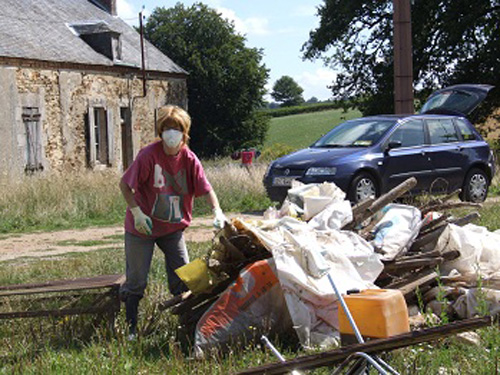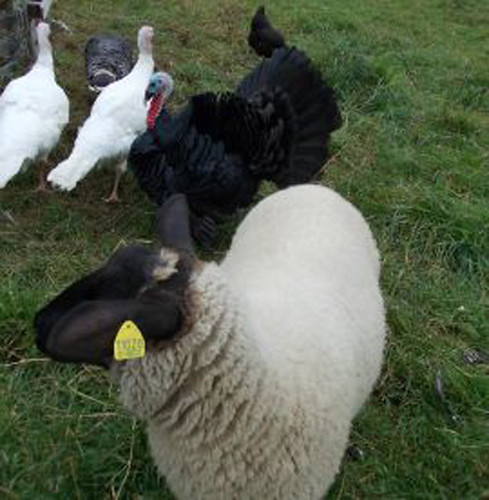Surviving Our Early Expat Years
It’s five years since we left Ireland to come to France. We’ve come a long way – not just physically, but culturally too. We no longer froth at the mouth over lunchtime closing. We happily shake hands and kiss cheeks with anyone, and we do it the right number of times. We manage just fine without digestive biscuits and salad cream.
Our three children are completely Frenchified. They’re at the stage now where they’re forgetting English words and prefer reading French books to English ones. Chris and I will never get to that point, and that’s OK. But I am in training to become a French citizen. My gallic shrug is right up there with the best of them, and I look hot in a beret. I even know some of the words to ‘The Marseillaise’, without doubt the goriest national anthem out there.
But why did we come to France in the first place? Why did we aspire to go down in the world, to leave the country where we could communicate successfully and actually use our painstakingly acquired professional qualifications to make a living? Why did we abandon all that and go abroad where, at least at first, we would be scratching a living so far below the poverty line as to be completely out of sight of it? Insanity? Bloody-mindedness? Misguided romanticism? The spirit of adventure? Actually, all of the above, plus the need to change our lives. And we’ve certainly done that.
These days I’m a lake owner, gîte runner and llama farmer. I’m also an English graduate, an editor and a writer. I have a vast vocabulary – in English, at least. One of the hardest things about being an ex-pat has been getting used to being a bumbling moron in the foreign tongue. You’re reduced to the language ability of a small child.
There are loads of words you don’t know. So, for example, instead of simply telling the garage mechanic: “My electronic dashboard has stopped working,” you have to go with: “It does not work, the big electric thing at the front of the car that tells you your speed and how much petrol you have and what time it is.”
Face-to-face I don’t have too much trouble communicating. My French is pretty good and body language and hand gestures are wonderful things. But the phone is dangerous. Conversations can easily veer into unknown territory and leave both parties wondering what the heck is going on. This can be handy at times, such as when cold callers are trying to sell you something unidentifiable and you’re in the middle of a meal. These days we just reply chirpily in exaggerated pidgin French along the lines of: “My uncle is a potato and I keep croissants under the bed. Now I must sing to my onions. Hello please,” and put the phone down. Works like a charm.
Here are a few of our worst faux pas – I think. Who knows what horrors we’ve actually come out with.
To teacher: “Ruadhri was absent from school because of an annoying pencil case.” (I used trousse = pencil case, instead of toux = cough)
To chemist: “I need a box of flies because I have a cold.” (mouches = flies, instead of mouchoirs = tissues)
To stranger in shop who asked where we came from: “We used to dress ourselves in Ireland.” (s’habiller = to dress, instead of s’habiter = to live)
To café owner: “I think I left my long purple ladder here yesterday. Did you find it?” (échelle = ladder, instead of écharpe = scarf)
To a neighbour: “We have lots of animals on our farm – llamas, alpacas, goats, rabbits, chickens, a dog and a whore.” (I actually used the correct word for a female cat, namely chatte, but it is a term to avoid like the plague as it also means a prostitute or a particular part of the female anatomy.)
I put the village idiot out of a job when we moved here, but luckily the French don’t mind us sharing their country with them. We help keep the schools open with our kids, we provide more income in the commune through local taxes, and with our foreignness we give them a good laugh!
It’s been tough, stressful and challenging to say the least, but ex-pat life is also exciting, stimulating and never, ever dull. I’m looking forward to the next five years.










Hi, I love your “faux pas” in French. I had an Australian friend whose surname was “Devine” and she used to have all sorts of problems when people asked her name (drycleaner’s, etc.) because she would unwittingly answer “devine” which means “guess” of course! I don’t have the same problem in French (after 37 years, you’d hope not) but I do have it in Italian. I had to describe charcoal for the barbeque as “that small black thing that you use to cook outside”. It worked though. I’ll enjoy reading your blog.
Hilarious article. 🙂 I like the tip on speaking on the phone in France- I would get mini panic attacks every time an unknown caller rang me !!!
Rosemary: your poor friend! That must have been so awkward. And I shall file away that description of charcoal for when I need it, as I probably will one day.
Bethany: the phone definitely takes on an untrustworty and threatening presence in an expat’s home!
ahah so funny. I am french living in London and I can tell I do the same mistakes in English. But that’s fine. People understand we are foreigners. I also have the impression to speak English like a child and communication is more difficult. At the beginning, I was also desperate because of the british accent. (for me, harder than the american accent). How glad I am now when I can understand what people say. This is like a victory after a bloody battle ^^
Well done Julie! The important thing is to try. People don’t mind you making mistakes. French people are usually keen to correct them – do English people do the same? And after you’ve struggled away for a while, nine times out of ten your French listener will suddenly pipe up in near perfect English!
Salut, Stephanie et les autres.
Très marrant, ton article. Ta réponse à ceux qui osent appeller pendant le diner est super. On devrait répondre à ces gens si peu sensibles d’une façon pareille, quelle que soit la langue (on pourrait faire de même en anglais). En tout cas, ça me rappelle un type qui m’a dit un jour que la seule phrase de français dont il se souvenait, c’était “Je ne suis pas une fenêtre”! – dingue et utile dans aucune situation, j’imagine, mais peut-être l’équivalent de “Je dois m’en aller chanter aux oignons”!
Quant aux faux pas linguistiques, mon meilleur a été que j’ai malcompris la soeur de mon amie française quand elle m’a dit assez tard un soir “Gérard, tu fais la moue, hein?” J’ai cru qu’elle m’avait dit “tu fais l’amour?” (Elle a dit ça car j’avais à ce moment-là l’air vexé à cause de quelque chose)
Je vais ajouter cette phrase inutitle à ma liste, Gérard ! C’est superbe, merci.
J’aurais aimé être là ! C’est vraiment bien comme qui pro quo. Fitz, qu’est-ce que tu as répondu ?
Rosemary
sais pas exactement. Ayant malcompris, j’ai dû être abasourdi. À l’époque, j’ai pensé: “Voici la soeur cadette (16 ans) qui essaie de me séduire, quelle libertine”. Mais il est probable que réponse nerveuse que j’ai balbutié a été “Mais pourquoi tu me demandes ça?” Le plus important, on me m’a jamis laissé oublier – j’étais la butte de la blague (hope that’s correct French) pendant plusieurs jours à suivre.
sorry… that should be spelled ‘balbutiée’ (cursed agreement with preceding direct object)
En plus elle n’avait que 16 ans ! “Butt” est un mot intéressant puisqu’il a dû passer du français en anglais sans garder la même construction. Tu peux dire que quelqu’un est “en butte à la raillerie” ou “en butte aux plaisanteries” mais tu ne peux pas dire “j’étais la butte de la blague”, plutôt “j’étais la cible de la plaisanterie” mais le sens est un peu différent. Une expression qu’on entend souvent dans ce contexte est “le dindon de la farce”. Pour plus d’explications sur son origine, http://www.mon-expression.info/etre-le-dindon-de-la-farce.